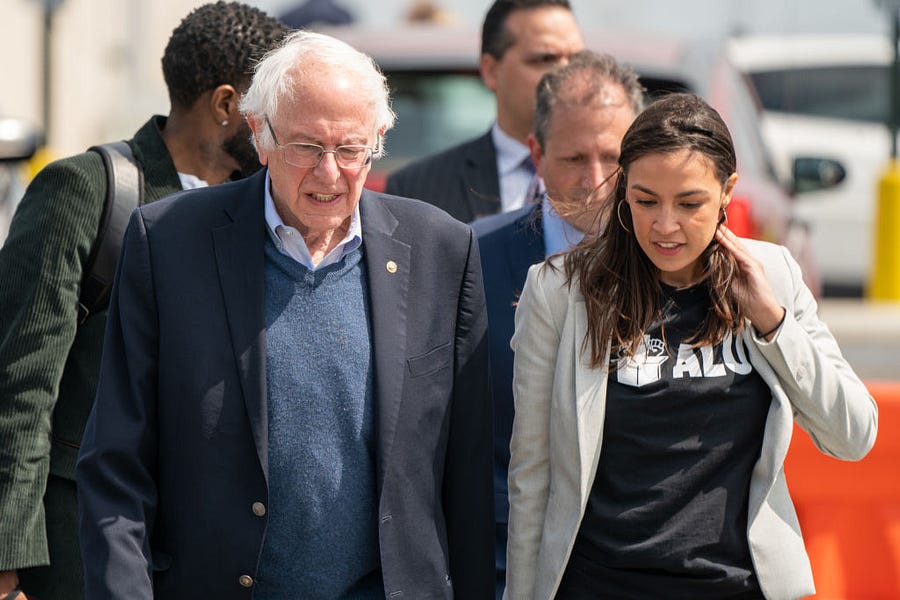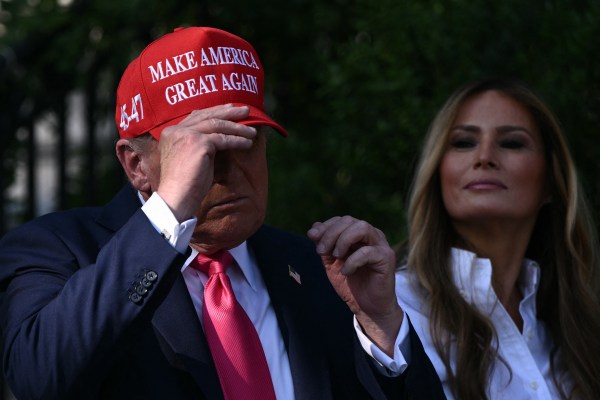As the culture wars make a mess of politics today, progressives are making a mess of the culture wars. There are some lessons to be learned about sensible policymaking in all of this.
The culture war fevers on the political right deservedly get a lot of coverage, but progressives are doing worse damage to themselves as they obsess about issues ordinary Americans in inflationary America don’t care about. Joe Biden’s continuously dismal approval ratings will remain where they are if he stays in his doom loop over there to the left of where most rank-and-file Democrats live. When analysts ponder in November why Democrats took it on the chin in this year’s midterms, this disconnect will offer the most plausible explanation.
A case in point is the recent Harvard-Harris poll showing that most Americans still have a fairly moderate view of abortion while the left is busily interpreting the majority of Americans’ opposition to the Dobbs decision as support for an extreme abortion policy. This overreach—just like Biden’s overreaching “transformational” agenda in 2021 when Americans just wanted a return to normal or the congressional Democrats’ overreaching social spending plans on programs too few people wanted—will backfire, as it always does.
In a previous essay for The Dispatch I wrote about the ideological heartland, a dispositional place in which roughly 70 percent of Americans live. It is inhabited by domestic realists who are far less likely than zealous progressives and conservatives, who account for less than a quarter of the population, to care about hot-button culture-war issues. They are more interested in sensible solutions to everyday problems like housing affordability, school quality, public safety, and job quality. They have opinions on hot-button issues, but they don’t want to go to war over them. The zealous progressives who disproportionately advise politicians and work in the media seem congenitally unable to grasp this point.
One data point in particular encapsulates the distorted vision of today’s progressive elite: their view of upward mobility. The average American believes that if you work hard, you can achieve what you want. The average zealous progressive does not, by a long shot.
This finding becomes more revealing when we look at urban and suburban residents in major metro areas in large American Enterprise Institute surveys who describe themselves as moderate or leaning left or right. Nearly two-thirds of these “metro heartlanders,” who comprise about a third of the U.S. population, agree that working hard can get most people what they want. There is not much difference between those in urban centers and those in the suburbs. Meanwhile, nearly 70 percent of zealous progressives—those who describe themselves as “very liberal” and account for less than 15 percent of Americans — disagree. Their intensity is notable. More than a third of them “completely disagree” that hard work leads to success.
This is where you end up after marinating for too long in universalist explanations of structural inequality and the grievance culture they produce. It is hard to find another data point in the surveys on which one demographic group is so far removed from the mainstream than this one. Most Americans believe that hard work pays not because they haven’t gotten around yet to reading Thomas Piketty and Paul Krugman, but because they see it all around them.
The most interesting thing about urban and suburban heartlanders is that they have more in common with each other than with hardcore progressives. The tendency in political analysis to associate urbanism with progressivism stems from the fact that Democrats outnumber conservatives in cities, but that correlation falls apart when we consider that being a heartlander is a kind of sensibility that outweighs one’s geography. Because urban areas have a predominantly Democratic electorate, progressive elites keep erring in their assumption that people in cosmopolitan areas are as intensely committed to the same goals as they are.
The current crisis of progressivism, which Kevin Williamson rightly attributes to a lack of rigor that leaves the left “intellectually flabby and morally thin,” holds lessons for both progressives and conservatives. Simply put, it is important to offer an agenda that has broad appeal to the aspirations and concerns of the people who get up every day wondering how their day will end rather than fretting whether the world will end.
It is past time for political leaders in both parties to redial their efforts toward the ideological heartland, and the first party to take this seriously—which means building coalitions around ideas with broad appeal while upsetting what party leaders overinterpret as “the base”—could dominate in ways their current leaders’ stunted imaginations cannot presently grasp.
What are some important distinctions about the heartland to keep in mind as we think about midterm elections and the 2024 contest? For one thing, heartlanders are considerably more likely than the zealots on the right and left to believe they can find common ground with people with whom they usually disagree. They simply do not care as much about politics as hardcore progressives do. For instance, fewer than a third of them have had a political disagreement with someone they did not know well in the past year, compared to more than half of zealous progressives. And while they are nowhere close to the nearly 90 percent of zealous conservatives who think the media has an agenda, a majority of them do, unlike progressives who mostly believe the media reports the news fairly.
Or consider religion. When we look at the heartlanders in big metro areas, less than 15 percent of them “completely agree” that people with strong religious beliefs are too intolerant of others, compared to 38 percent of zealous progressives. When the question switches to politics, though, metro heartlanders are more likely than the progressive group to completely agree that people with strong political views are too intolerant. In both cases, metro heartlanders are more in line with the national average than with zealous progressives. That urbanized moderates think more like conservatives than progressives on religion and politics helps explain why the progressivism that dominates Democratic Party leadership today keeps misfiring on these important issues.
On other issues, heartlanders lean left on immigration and race and gender, but they lean right on free speech, the feasibility of attaining the American Dream, and the role of entrepreneurship in America—that people can start and build a business and get ahead if they work hard. In other words, heartlanders believe that being an ethnic and racial minority makes life harder for you and the role of government should be to lessen those inequalities, while they also contend that freedom in America is a good that allows for people of every background to pursue their dreams. Progressives puzzling over why Hispanics have moved rightward have simply missed the obvious point that many Hispanic voters are heartlanders at the core.
The ideological heartland is important for many reasons, but two in particular. First, it provides a guidebook for policy entrepreneurs. An agenda that combines traditionalism and pluralism is the recipe for a winning political coalition and a sensible policy agenda. The heartland wants more religion and less politics, but it also wants inclusion for outsiders. It wants personal responsibility and opportunity, but it also wants justice for the newcomers and alienated. These are, historically speaking, the very best American instincts.
Second, it provides an ongoing, if not always perceptible, buffer against the extremes to which the zealots on both sides of the political spectrum try to pull the country. Our political parties have weakened, thereby allowing the zealots with a large following and dollars that follow the following to dominate our politics and our policymaking. But even the zealots find their limits, and it is always because of the heartland. From Donald Trump’s decreasing support to increasing support for sanity in our schools among progressive parents, heartlanders are keeping the country on course.
The ideological heartland is everywhere—small towns and big cities and everywhere in between. Our current challenge is whether leaders in both parties will figure out how to adapt to that reality.
Ryan Streeter is the director of domestic policy studies at the American Enterprise Institute.






Please note that we at The Dispatch hold ourselves, our work, and our commenters to a higher standard than other places on the internet. We welcome comments that foster genuine debate or discussion—including comments critical of us or our work—but responses that include ad hominem attacks on fellow Dispatch members or are intended to stoke fear and anger may be moderated.
With your membership, you only have the ability to comment on The Morning Dispatch articles. Consider upgrading to join the conversation everywhere.